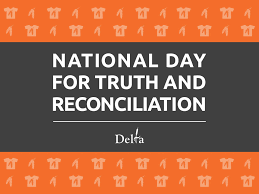Understanding Truth and Reconciliation Day in Canada

Introduction: The Importance of Truth and Reconciliation Day
Truth and Reconciliation Day, observed annually on September 30, serves as a significant occasion for remembrance, reflection, and education regarding the legacy of residential schools in Canada. This day is essential in acknowledging the injustices faced by Indigenous peoples and promoting healing and understanding between Indigenous and non-Indigenous communities. Instituted to honor the children who were lost to these schools and the survivors who lived through these experiences, it plays a pivotal role in Canada’s journey towards reconciliation.
The Events of Truth and Reconciliation Day
On this day, various events take place across the country, reflecting on the history and impact of residential schools. Communities gather to participate in ceremonies, discussions, and educational workshops aimed at fostering awareness of Indigenous cultures and histories. For instance, in 2023, numerous organizations held marches and partnered with local Indigenous groups to organize events that included storytelling sessions and cultural performances. The National Centre for Truth and Reconciliation has also emphasized the need for educational initiatives that will assist Canadians in understanding the lasting effects of these institutions.
Furthermore, participation from various sectors, including schools, governments, and non-profits, has increased. Educational institutions often take this opportunity to discuss the history of residential schools in their curriculum, helping students grasp the implications of Canada’s colonial past.
Significance and Future Outlook
As we reflect on the importance of Truth and Reconciliation Day, it becomes clear that this observance is just the beginning of a larger journey towards justice and healing. The act of recognition and the commitment to listening to Indigenous voices are crucial as nations work towards real reconciliation. With the federal government pledging to support Indigenous communities, the hope is to see more actionable steps being taken beyond just commemorative events.
Looking forward, there is optimism that as more Canadians engage with the truths of our collective history, significant strides can be made towards mending relationships. The continued education around these issues among younger generations is key, as is the commitment from institutions to foster dialogues that are not only respectful but also reflective of the truths that have historically been obscured.
Conclusion
Truth and Reconciliation Day encapsulates Canada’s ongoing struggle for recognition and restitution concerning the treatment of Indigenous peoples. As we honor this day, it is a reminder of the collective responsibility to ensure that the past is not forgotten and that the path toward a reconciled future is paved with understanding, respect, and a commitment to protect the rights and cultures of Indigenous communities.









